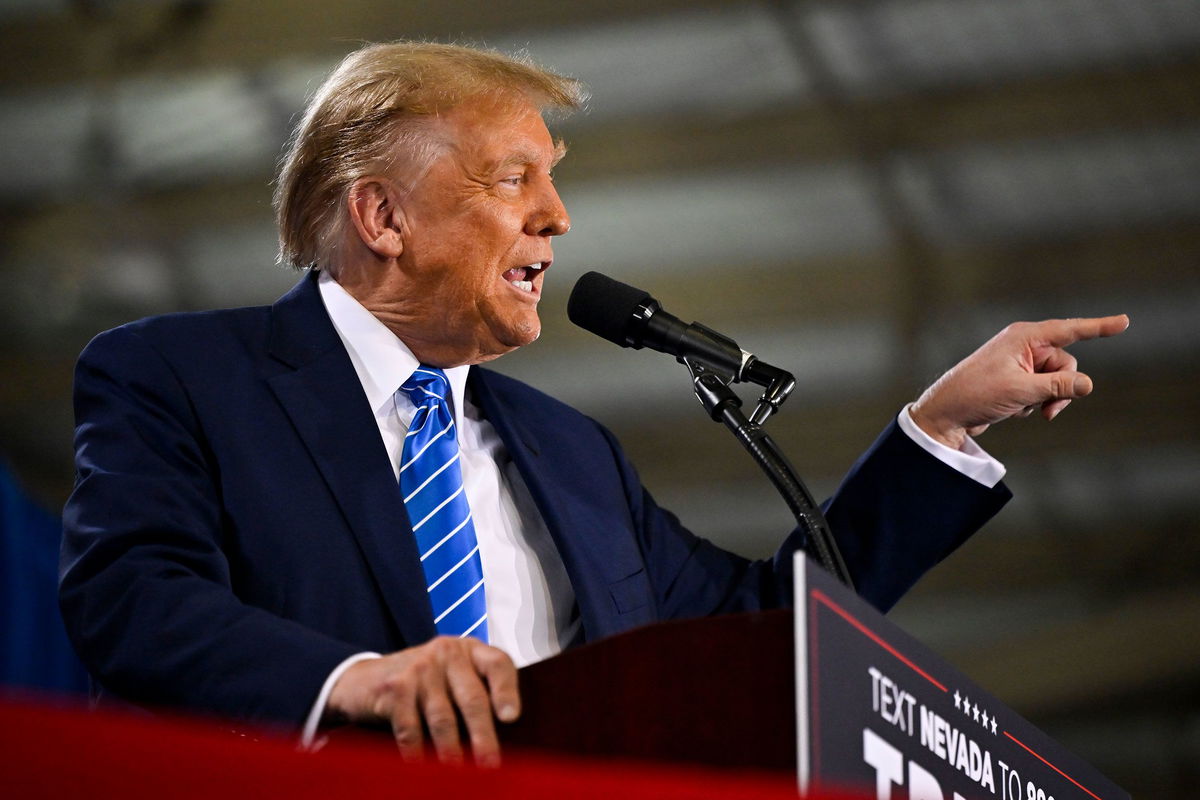Nevada’s dueling GOP primary contests create confusion despite Trump’s assured delegate victory

By Eric Bradner, Kyung Lah and Anna-Maja Rappard, CNN
(CNN) — Donald Trump is certain to win Nevada’s Republican presidential delegates — but some voters who want to back the former president are confused about why they can’t find him on their ballots.
It’s the result of a dueling 2024 system in which the Silver State will hold two GOP contests within three days: the state government-run primary on February 6, where Trump isn’t on the ballot and no delegates are at stake, and the Nevada Republican Party-run caucuses on February 8, where the former president faces no serious opposition to win the state’s 26 delegates.
What’s confounding some voters who are casting early primary ballots is that the choices in the two elections are entirely different.
Trump is only participating in the caucuses and thus isn’t on primary ballots. Meanwhile, his lone remaining major 2024 GOP rival, former South Carolina Gov. Nikki Haley, is on the primary ballot and isn’t participating in the caucuses.
“In your state, you have both a primary and you have a caucus. Don’t worry about the primary, just do the caucus thing,” Trump told attendees at a Las Vegas rally last weekend.
However, some Trump supporters who weren’t aware of the distinction said they were baffled.
“I was like, why is the guy that I want to vote for not on this thing?” said Leslie Miller, one of many waiting in line for his recent rally there.
“It’s gonna be very confusing for people. It was for me,” said Angela Barsekian, a grandmother of two who said she backed Trump in the previous two presidential elections.
Outside an early voting location in Henderson, Joseph Martin complained that he hadn’t been able to find Trump on the ballot — so he voted “none of the above” and plans to go to the caucus, too.
“The person I wanted to vote for wasn’t on this ballot. I didn’t know he wasn’t going to be on this thing here,” he said.
“I don’t understand why we’re doing it that way,” said Bill Laine, another registered Republican who voted in the primary. Laine said he voted for Trump in 2020 but now supports Haley in the Nevada primary.
The parallel contests are the result of a 2021 Nevada state law that requires a primary — a shift from the state’s previous use of a presidential caucus system. Democrats in the state adopted the primary system — President Joe Biden and author Marianne Williamson will both be on the February 6 Democratic primary ballot — but Republicans rejected it, with the state GOP, led by Trump loyalists, opting instead to hold its own caucuses.
The Nevada GOP warned presidential candidates last year that they would not receive any delegates if they filed to run in the state’s primary. But some, including Haley, South Carolina Sen. Tim Scott and former Vice President Mike Pence chose to do so anyway. All but Haley have dropped out of the race.
Meanwhile, Trump, as well as Florida Gov. Ron DeSantis, entrepreneur Vivek Ramaswamy, former New Jersey Gov. Chris Christie, North Dakota Gov. Doug Burgum and Texas pastor Ryan Binkley filed to run in the caucuses.
The departure of those candidates (aside from the little-known Binkley, who is still in the race) effectively cemented Trump’s victory in the caucuses before either of the dueling contests were held.
“We will deliver you 100% of delegates of the state of Nevada to Donald J. Trump,” Nevada Republican Party Chairman Michael McDonald said at Trump’s Las Vegas rally.
The state GOP’s decision has faced critics who say it was an effort to help Trump fend off a competitive race.
“I believe that they set up the caucus because they wanted to assure that Donald Trump was not embarrassed in Nevada and secured Nevada’s vote,” said former Clark County Republican Party Chairman Chuck Muth.
He added: “This definitely smells of rigging the caucus on behalf of Donald Trump.”
Adding to the criticism of Nevada’s parallel contests is the indictments of state Republican Party leaders, including McDonald and Clark County chairman Jesse Law, for attempting to falsely certify that Trump won Nevada in 2020 — when he lost the state to Biden. McDonald and Law are among the six so-called “fake electors,” who have pleaded not guilty to felony charges brought against them by Nevada’s attorney general in December.
“How do you trust it? To me, it comes across as complete pro Trump scam. That’s it plain and simple,” said Amy Tarkanian, a former state GOP chairwoman.
Tarkanian, who broke from the Trump wing of the GOP, called the caucuses another sign of Trump’s hold of the party.
“It’s sad and it’s disappointing. I think really they’ve disenfranchised the Republican voter,” she said.
The-CNN-Wire
™ & © 2024 Cable News Network, Inc., a Warner Bros. Discovery Company. All rights reserved.